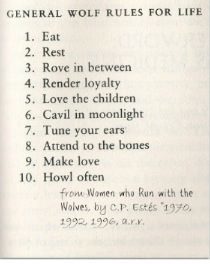Standing in the front hallway of our home, laughing and chatting with my parents, are two beautiful young women. I am mesmerized. They are spirited and glamorous, on the cusp of adulthood. I’m very young, perhaps six years old. One of the women is my aunt, the other is her friend, and they have travelled by bus from Edmonton, to spend their Christmas vacation with us in Lethbridge.
Something in them resonates deeply with me, but the detail that gets tucked away in my memory is that of the extraordinarily large and beautiful buttons on the highly fashionable coat one of them is wearing.
Christmas vacation ends. My life goes back to its quiet childhood routine; theirs to college and their adult lives. I see my aunt regularly throughout my childhood; I don’t see her friend again, nor do I hear anything about her, ever, at least not that I can recall. But we’d connected that day, all of us standing there, and two weeks ago, five decades after that encounter, she showed up as a brilliantly sparkling diamond in my email box.
She’d accidentally come across this blog, put a few pieces of the puzzle together, and remembered that Christmas and the warmth of my parent’s home. And she contacted me.
She’d gone on to university, marriage, a dissertation on Dietrich Bonhoeffer, career and family, and events that eventually lead her to Japan. She describes the adolescent self I met way back then as “rebellious, independent, and impetuous”. I describe my child self as quiet, earnest, timid, and eager to please. We are very different people, our circumstances have been very different, and yet in a single conversation five decades later it’s clear to me that we are still somehow connected.
I happen to believe we’re all connected, through a living and infinite universe, upon which we rely for our very breath. What you prefer to name that source of life does not matter to me, but it is extraordinary. As Irish poet and philosopher John O’Donohue put it, “The ancient rhythms of the earth have insinuated themselves into the rhythms of the human heart. The earth is not outside us; it is within: the clay from where the tree of the body grows.”
Or, as Liam Scheff puts it in Official Stories, “We sprout, as living ambulatory self-conscious plants, from a universal energy being; not as accidents, but as manifestations of an organized, patterning and creative penetrating mind and soul, whose identity we, and all of life and matter, share.”
We are, in other words, part of an infinite, powerful, living, energetic, magnetic and elemental universe. This is a concept that resonates with my experience. The universe feels alive. It feels like love, and love is the energy of life and our connection to that infinitely larger whole, a whole that flows through us and is our breath, our heartbeat.
We are tiny parts of something much larger, distinct but energetically connected, mitochondria in the cells of the universe.
This, in my mind, demands reverence, humility and gratitude. It is a grand energy. And it is at the core of the exchange I have re-experienced with someone I connected with once many years ago when I stood in awe of her independent spirit, knowing there was something in her I needed.
It is love that my friend remembers experiencing in my parent’s home that Christmas, love between my parents, love for their children, and the love they extended to others in need of a soft place for a minute.
Thank-you Veronica for wearing the memorable coat back then, and for finding me now. Thank you for your attention, for recognizing my mother, for putting the pieces together, and for not stopping there–thank you for making contact and giving me a drink at the well of love flowing through you.
 This is from the brilliant Clarissa Pinkola Estes of Women Who Run With the Wolves, via her Facebook page today.
This is from the brilliant Clarissa Pinkola Estes of Women Who Run With the Wolves, via her Facebook page today.


